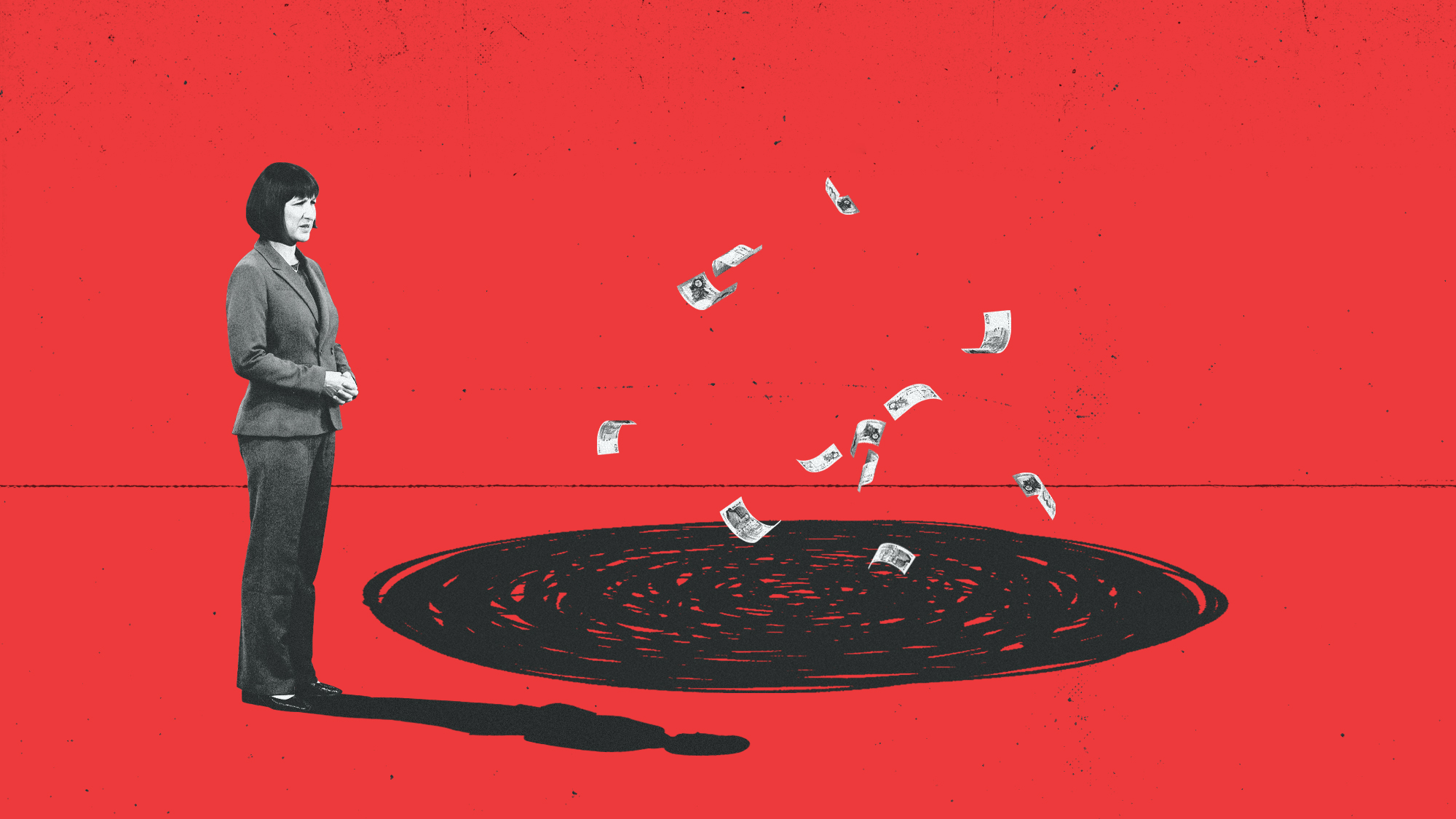How will Labour plug £20bn spending 'black hole'?
Cuts to infrastructure projects and Whitehall spending are likely to be announced as part of chancellor's plans to save billions

A free daily email with the biggest news stories of the day – and the best features from TheWeek.com
You are now subscribed
Your newsletter sign-up was successful
Rachel Reeves will today reveal the results of an audit of the nation's finances and announce plans to fill what she says is a £20 billion "black hole" in public spending left by the outgoing Tory government.
In her first major speech as chancellor, Reeves is expected to say that it is time to "level" with the public over the country's finances.
"The previous government refused to take the difficult decisions," she will tell MPs, according to The Times. "They covered up the true state of the public finances. And then they ran away."
The Week
Escape your echo chamber. Get the facts behind the news, plus analysis from multiple perspectives.

Sign up for The Week's Free Newsletters
From our morning news briefing to a weekly Good News Newsletter, get the best of The Week delivered directly to your inbox.
From our morning news briefing to a weekly Good News Newsletter, get the best of The Week delivered directly to your inbox.
Reeves will outline public sector cuts in a bid to save money in the current financial year. However, she is also expected to accept the recommendations of the pay review bodies, which means public sector workers such as teachers, prison staff and NHS workers will receive above-inflation pay rises. She will "make the argument that the pay rises are necessary to avoid the costs to the economy seen in the waves of strike action under the Conservatives", said The Guardian.
What did the commentators say?
To make up the shortfall this year, Reeves is expected to announce delays to infrastructure projects, as well as measures to cut spending in Whitehall departments.
Plans to spend £1.7 billion on a tunnel beside Stonehenge to hide the sight and sound of traffic passing the Neolithic monument are to be scrapped, as well as a Boris Johnson-era promise to build 40 new hospitals by 2030, said The Guardian. A 2019 Conservative manifesto promise to restore 45 railway lines and stations could also be scaled back. The paper added that Reeves' statement to the Commons today "will not mark the end of the review process on the government's hunt for cuts but will set out the first projects to be axed or curtailed".
The Times also reported that Reeves plans to "accelerate the sell-off of empty public buildings and reduce the use of external consultants" in a move "expected to save £500 million".
A free daily email with the biggest news stories of the day – and the best features from TheWeek.com
We have a good idea of some of the things that have caused the £20 billion "black hole", said Sky News' deputy political editor Sam Coates. "The state of the prisons is one, while the soaring bill for keeping asylum seekers in hotels is another."
But the decision by ministers to accept recommendations for public sector pay rises hints that cutbacks in other areas are "the consequence of political choices", which "may stretch the definition of 'black hole' for some", said Coates.
What next?
"Publishing a warts-and-all audit on public spending pressures is risky" and a "significant test for the new chancellor", said the BBC's economics editor Faisal Islam. Many MPs are likely to question whether these billions of pounds of spending pressures were "really unexpected". "The first task for a new chancellor is to win credibility with investors – and with voters," said Islam. "But the last few years have demonstrated that credibility is hard to gain and much easier to lose."
And what is being outlined today only relates to this financial year, said Coates. "Everything else is for future budgets and spending reviews." With potentially expensive government spending promises lurking on the horizon – such as the contaminated blood compensation scheme, which has been priced at around £10 billion – it could mean that more spending cuts and tax rises are coming in the future. "Today might not be as bad as it gets," said Coates.
Sorcha Bradley is a writer at The Week and a regular on “The Week Unwrapped” podcast. She worked at The Week magazine for a year and a half before taking up her current role with the digital team, where she mostly covers UK current affairs and politics. Before joining The Week, Sorcha worked at slow-news start-up Tortoise Media. She has also written for Sky News, The Sunday Times, the London Evening Standard and Grazia magazine, among other publications. She has a master’s in newspaper journalism from City, University of London, where she specialised in political journalism.